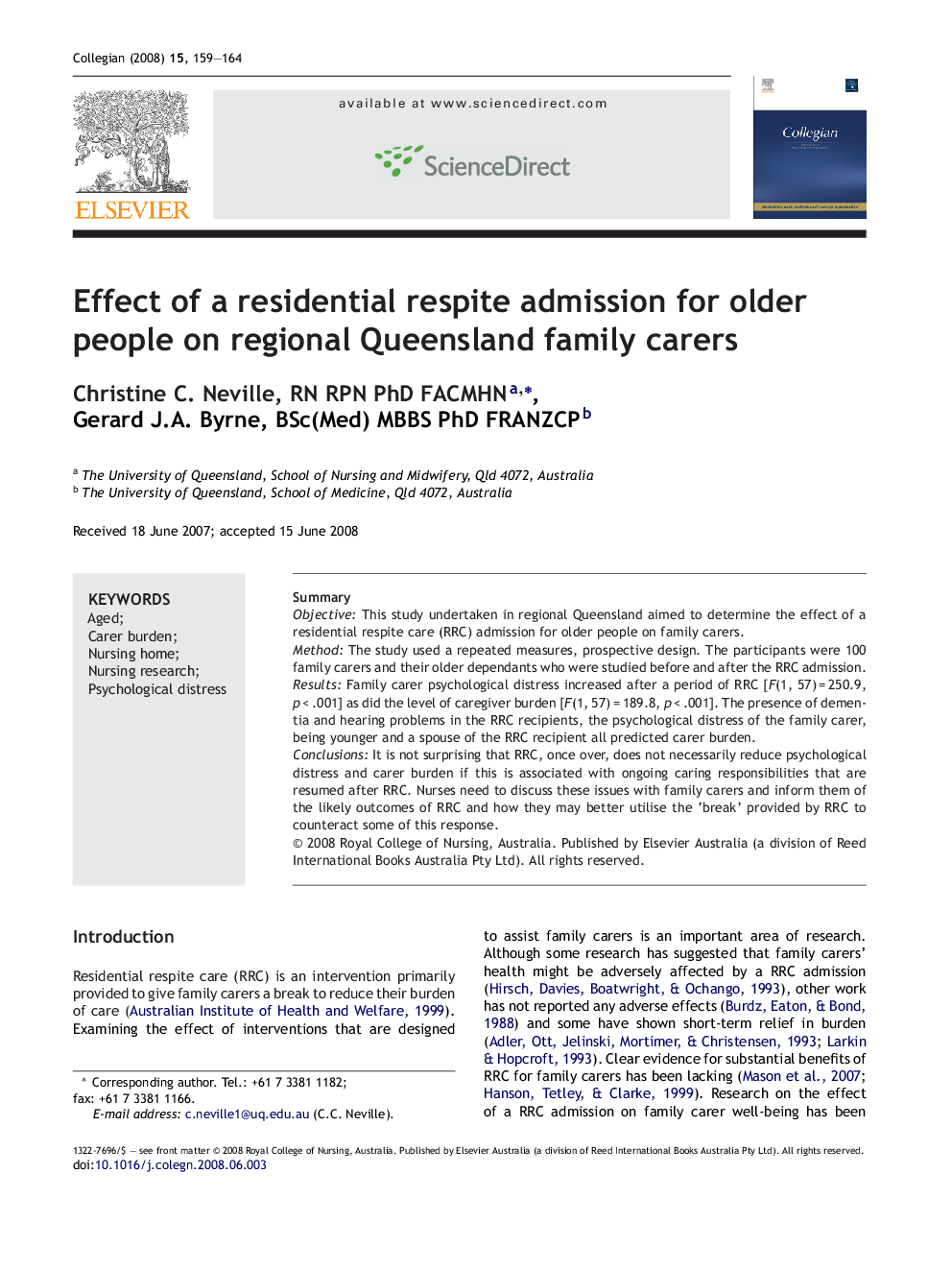| Article ID | Journal | Published Year | Pages | File Type |
|---|---|---|---|---|
| 2646608 | Collegian | 2008 | 6 Pages |
SummaryObjectiveThis study undertaken in regional Queensland aimed to determine the effect of a residential respite care (RRC) admission for older people on family carers.MethodThe study used a repeated measures, prospective design. The participants were 100 family carers and their older dependants who were studied before and after the RRC admission.ResultsFamily carer psychological distress increased after a period of RRC [F(1, 57) = 250.9, p < .001] as did the level of caregiver burden [F(1, 57) = 189.8, p < .001]. The presence of dementia and hearing problems in the RRC recipients, the psychological distress of the family carer, being younger and a spouse of the RRC recipient all predicted carer burden.ConclusionsIt is not surprising that RRC, once over, does not necessarily reduce psychological distress and carer burden if this is associated with ongoing caring responsibilities that are resumed after RRC. Nurses need to discuss these issues with family carers and inform them of the likely outcomes of RRC and how they may better utilise the ‘break’ provided by RRC to counteract some of this response.
